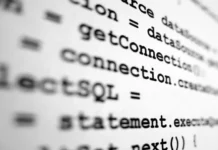Mobile phones have now become an integral part of the human race’s daily life. Mobile devices, especially smartphones, are becoming popular as they offer identical features to computers and can be carried everywhere in our pockets, purses, or cars.
Smartphones have become storehouses for sensitive and valuable information like contact details, email addresses, passwords, banking details, copies of government identities, etc. Besides being popular and useful, smartphones are characterized by security loopholes that make them vulnerable and easy targets for cybercriminals and hackers.
Mobile phone security is now a hot topic globally as people are slowly becoming more cautious about their smartphone’s security. Besides this, smartphone manufacturers are also providing additional security features to ensure user’s data gets the best protection from cyberattacks. Any lapse in your phone’s security can harm your personal and professional lives. Realizing the importance of mobile phone security is the first step to changing how you use your device.
We have compiled a list of five simple methods by which you can increase your smartphone’s security and stay protected from hackers and malicious persons.
Contents
1. Use Trusted Wifi Network
Many individuals connect to public Wi-Fi networks instantly without thinking about the consequences, even for a moment. They are unaware of these public networks because hackers can utilize them to acquire sensitive information from their smartphones. Most open Wi-Fi networks available at hotels and event locations somehow follow safety protocol. Still, the ones in shopping malls, airports, parks, and cafes are less secure and should be used only during urgent requirements. However, suppose you still want to use the public Wi-Fi network. In that case, you can do it by using it with the help of a VPN for iPhone that masks your internet activity and traffic through an encrypted connection.
2. Use Two-Factor Authentication
You should take advantage of every possible method that is available to protect your smartphone completely. One such method incorporates the two-factor authentication commonly known as 2FA which acts as a solid obstacle to avoid unnecessary access to your personal information and data. However, many people do not utilize this option as it demands an extra step for verification. But imagine all your sensitive information getting vulnerable to cyberattacks if you skid two-factor authentication. Nowadays, owing to saved password options and fingerprint systems, this option is more convenient to use.
3. Install Trusted Apps
The smartphone manufacturers and cybersecurity experts highly advise that you only download and install smartphone apps for reliable and trustworthy sources, especially those that request access to your GPS location. While Apple iPhone has some reliable apps for tracking the phone’s location, android smartphones are not that much secure as they permit downloads and installation from multiple sources available on the internet. This makes android users more prone to falling prey to cyberattacks due to malicious apps. The best approach to evade this risk is to strictly download and install apps available on the Apple App Store and Android Play Store to ensure that they are reliable ahead of giving them access to your GPS location.
4. Avoid Phishing and Spam Emails
The most frequent approach used by hackers to crawl into your smartphone and the information stored in it is by breaking into your email’s inbox. You should keep yourself adequately educated and aware of how to stay safe from these emails. You should differentiate between authentic emails and phishing emails that look identical most of the time. You should always avoid sharing your personal information online and should always check the sender’s identity ahead of initiating a conversation with them.
5. Always Keep Your Apps Updated
Many individuals often delay updating their smartphone apps and operating systems. Unfortunately, prolonged delaying of these critical updates can compromise the safety and security features of the app and the smartphone itself. However, these updates keep coming up periodically because developers keep trying to stay ahead of the hackers by pushing regular security updates for operating systems and apps. Therefore, it is highly advised that you download these updates as soon as they pop up to ensure your data is protected from cyberattacks and security threats.
Conclusion
A smartphone possesses some of the most valuable and confidential information of our lives, from professional emails, personal photographs, banking details, and much more.
If it somehow gets accessed by the wrong hand, this sensitive information can have a damaging effect on your personal and professional life. However, all of that can be avoided by looking into the ways mentioned above.









































 Online casino
Online casino